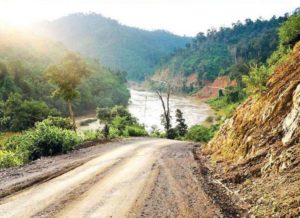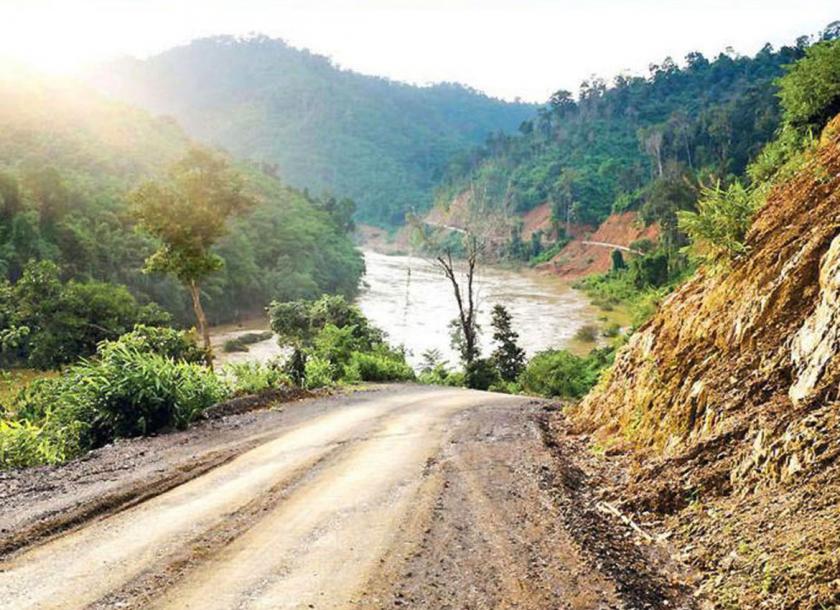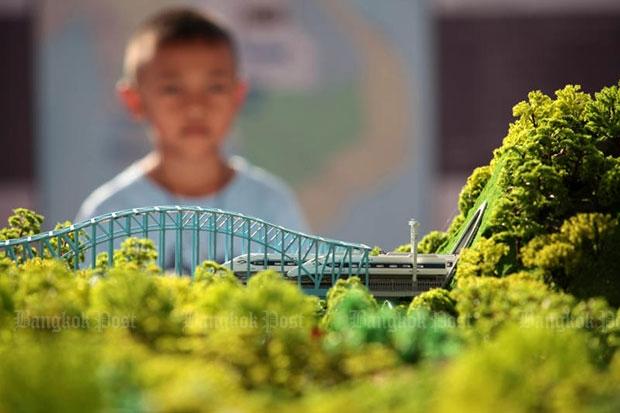
Myanmar government terminates Thai-Led Consortium’s Involvement in Dawei Mega Project
Italian-Thai Development Public Co. Ltd. (ITD) received a notification of termination of its agreement
The Myanmar government has terminated the involvement of a consortium led by a Thai construction company in the development of the long-delayed Dawei Special Economic Zone (SEZ), a strategic project in southern Myanmar’s Tanintharyi Region set to become Southeast Asia’s largest industrial complex, the company said.
Italian-Thai Development Public Co. Ltd. (ITD) said it had received a notification of termination of its agreement to develop the initial phase of the SEZ from the Dawei Special Economic Zone Management Committee (DSEZ-MC) on Dec. 30. It said the notification claimed the consortium had failed to make concession fee payments and had not complied with certain conditions precedent prior to commencing operations under its concession agreements.
ITD said it had told its legal adviser to immediately prepare a “letter of clarification and rebuttal to the allegations of the DSEZ-MC.”
Dr. Myint San, vice chair (2) of the committee, declined to reveal to The Irrawaddy details of the dispute between the committee and the consortium led by ITD, as the committee is still waiting for a reply from the company.
Located in Tanintharyi Region, the SEZ is adjacent to the Andaman Sea and near the Gulf of Thailand. It lies in a strategic location connecting the Indian and Pacific oceans and linking Southeast Asia with South Asia, the Middle East, Europe and Africa.
The Dawei SEZ is one of the priority projects that the National League for Democracy-led government is eager to get up and running. It has repeatedly sought Japan’s involvement in full-phase implementation of the project. The project is backed by the Thai government. In 2008, under Myanmar’s former military junta, ITD was granted a 75-year concession to develop and attract investment to the Dawei SEZ, which was initially scheduled to be complete in 2015. However, ITD withdraw from the agreement in 2013 due to financial constraints.
In 2015, Myanmar allowed ITD and its related companies to develop up to 27 sq. km of the initial phase of infrastructure projects, following a renegotiation of the original agreement with Thailand. The concession for the estimated US$1 billion (1.32 trillion kyats) worth of initial-phase projects (including an industrial estate and supporting infrastructure such as power plants, a small port, an LNG terminal and other related projects) was officially granted to a consortium led by ITD in August 2015 and March 2016.
In July 2019, the Myanmar government and ITD completed final negotiations for the construction of the initial phase. The Irrawaddy has learned that the Myanmar side came to the conclusion that the IDP-led consortium is not willing to begin the project, that there had been no development on the ground, and that it had failed to submit some documents as required during the last year.
The two sides agreed to construct the initial phase first. But in October 2019, Myanmar and Thailand agreed to implement both “initial-phase” and “full-phase” projects at the same time and to invite third-party investment in the full-phase implementation.
In late November, Japan declared its commitment to invest in the full-phase implementation of the project and decided to carry out studies including
a strategic environmental impact assessment (SEZ) and feasibility study (FS). The SEZ plays a vital role in Japan’s Mekong Southern Economic Corridor, which aims to connect central Vietnam, Cambodia and Thailand to the Dawei SEZ.
In 2015, the Japan Bank for International Cooperation signed a memorandum of incorporation (MoI) with Thailand’s Neighboring Countries Economic Development Cooperation Agency (NEDA) and Myanmar’s Foreign Economic Relations Department (FERD) to become a third shareholder in Dawei SEZ Development Company Limited (SPV). The company is responsible for advising the management committee on the comprehensive development of the SEZ and to invite international investors.
The 196-sq.-km SEZ includes a deep seaport and is expected be a potential boon for firms currently relying on the transport of goods via the crowded Malacca Strait. The planned project also includes high-tech industrial zones, information technology zones, export-processing zones, port area zones, transportation zones, service business zones and other infrastructure projects.
Source: https://www.irrawaddy.com/factiva/myanmar-terminates-thai-led-consortiums-involvement-dawei-mega-project.html

